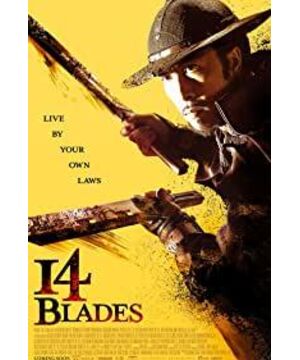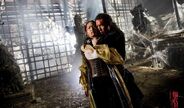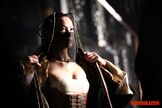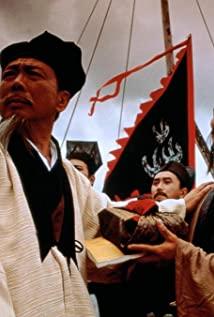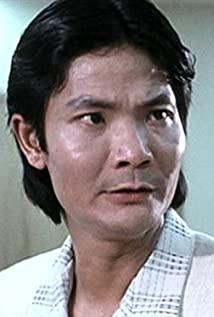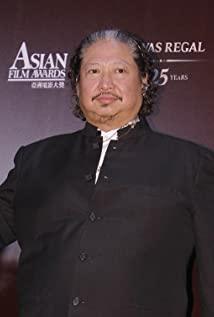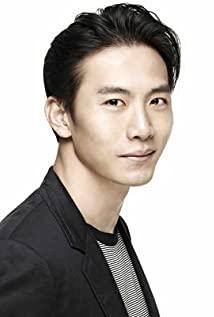Wen/Three Mistakes
20100204
Martial arts, gangsters, epics are my three favorite genres, and Donnie Yen is also my favorite actor. "Jin Yiwei" is released, and martial arts fans naturally want to go to the baseball stadium as soon as possible. However, the cold theater left me with a cold feeling. I didn't experience that kind of hearty and incisive pleasure, and I didn't experience the dream ritual of imagining Bo Yuntian's sword, light, sword and shadow, and I fell into an ambiguous situation. It seems to have seen the phantom of martial arts but can't grasp the true core of martial arts. It seems to tell the morality of the rivers and lakes but cannot feel the pride of the rivers and lakes. It seems to tell the entanglement and separation of men and women but can't feel the beautiful romance of love. It seems to have The various elements of martial arts movies are a form of embarrassment.
Desert lonely city, horses treading the yellow sand, court conspiracy, good and evil battle, Guanzhong escort, thieves outside the frontier, grievances between brothers, love and hatred between men and women, strange costumes, strange weapons, every broken chapter and every design can be called the classic elements of martial arts movies. In this arena, Jinyiwei is a common theme. Most of them are masked into murderous walking dead. They are loyal to the court and harm the martial arts, and all the chivalrous and righteous people can be executed. As a screenwriter, Li Rengang intends to pay tribute to the predecessors such as Master Hu and Zhang Wanli, and at the same time endow the younger generation with the rare spirit of the Jinyi Guards represented by Qinglong, Bailong and Suzaku. Qinglong was ordered to assassinate Zhongliang. After learning the plot of the rebels, he gave up the assassination mission, and took up the business of those heroes in troubled times, righteous men in the rivers and lakes, and heroes in the green forest, seeking self-dignity, protecting the jade seal of the country, and stopping the imperial mutiny to save the common people. War catastrophe. This transformation of the character's identity brings a refreshing feeling, which should be said to be the biggest highlight of the film.
Action and kung fu, also known as martial arts, are the essence and strengths of the Chinese film tradition. After Bruce Lee, when Jet Li gradually faded out, Jackie Chan's eldest brother was getting older and older, and Zhao Wenzhuo and Wu Jing mixed in poor film and television, it was difficult to become a climate, Donnie Yen took over the banner of Chinese kung fu movies. This little guy who used to play tricks in "Wing Chun" and "New Meteor Butterfly Sword", played the villain master of Cao Shaoqin and Nalan Yuanshu in "New Dragon Inn" and "Men Be Self-improvement", until "Slaying the Wolf" After establishing his personal style, after the consolidation of "Dragon Tiger Gate" and "Fuse", he finally became a "master of the generation" in "Ip Man", leaving behind the reputation of "Zhen Kung Fu".
There is a special phenomenon in Hong Kong movies. In the eyes of most fans, except for a few directors such as Wong Kar Wai, Xu Anhua, Chen Guo, etc., the works of many directors often become the masterpieces of stars, especially in the field of kung fu martial arts films. When I started "Heroes of Heroes", I didn't think of Chen Jiashang but Jet Li. When I talked about "Red Fan District", I didn't think of Tang Jili but Jackie Chan. When I talked about "Slaying the Wolf", I didn't think of Ye Weixin but Donnie Yen. From the current point of view, Li Rengang, as the backbone, has not yet established his own author style, and "Jin Yiwei" cannot avoid this phenomenon of "the director makes wedding clothes for the stars". The main line of the story revolves around Qinglong, and various characters appear around Qinglong. The action scenes with Donnie Yen as the core have also become the biggest selling point and attraction. In this way, when people talk about "Jin Yiwei" in the near future, most people think of Donnie Yen instead of Li Rengang first, becoming a standard "Zhen Wuxia".
However, "Zhen Wuxia" is not necessarily "true martial arts". Donnie Yen "shows" a Stallone-style burly figure, but his tough and tough skills are not as good as those of the previous works. There are more than ten martial arts scenes and various characters throughout the film. And emotions, none of them can make up for the gap between the film and the classic martial arts:
First, there is a lack of a three-dimensional and full villain image. The villain doesn't have to be evil, cold, and brutal to the end. When Yan Zhendong in "Once Upon a Time" was shot, how tragic and sad he showed? ! As Qinglong's first opponent, Tuotuo didn't have a few lines of dialogue from beginning to end, just like an emotionless killing machine. She worked for her foster father, but she never explained why she was so obsessed with her life. This cold-blooded killer with unknown identity and origin could not emotionally bring the audience into the play, and then identify with her father-daughter relationship with Prince Qing.
The two lack a heroic character who is both an enemy and a friend. Even though Qinglong has a stunt and a sense of righteousness, if it is only a corner, it is inevitable that the strength is weak and it is difficult to support the overall situation. The appearance of Desert Judge, the leader of the Tianying Gang, can logically fill this gap. A character like the judge is a rare and good material, and it will add luster to the whole play if you dig it out. For example, in "The Legend of the Bat", Zhongyuan Yidianhong chased and killed Ou Zhanchang, the first master of the court for money. After several lives and deaths, the last Yidianhong not only failed to kill Ou Zhanchang, but fulfilled his last wish after Ou's death. , the sympathy of heroes is touching. The desert judge descended from the sky, at first he fought with Qinglong, and then died to help Qinglong. It's a pity that after he was killed by Tuotuo, the film only used a brief flashback to tell the audience his last words before his death, and Qinglong did not show the pain and sadness of losing his friends, confidants, or brothers. Such sympathy is superficial, and it is difficult to move people's hearts.
The three lack the fighting climax of the duel between good and evil. The climax of traditional classic martial arts films often occurs in the final battle between good and evil. The school field duel between Junbao and Tianbao in "Tai Chi Zhang Sanfeng", and the rescue of his mother in "Fang Shiyu" have become popular among generations of martial arts fans. topic. At the end of the film, the decisive battle between Qinglong and Tuotuo unfolds in a gloomy ruined temple. Falling rolling stones, flying Buddha statues, and horizontally moving wooden pillars are trying their best to create a fierce atmosphere of the battle, but objectively weaken the performance of individual actions and cover up. It's as exciting as it should be.
Fourth, there is a lack of martial arts stunts that take one's life. The film spent a lot of thought on the character modeling and its accompanying weapons, but ignored the equally important martial arts skills - such as the Dali King Kong Palm in "The Iron Horse", the Dugu Nine Swords in "The Swordsman", "Eternal Sword and Dragon Saber". "The Great Shift of Heaven and Earth in ", and so on. This time, we have seen the many changes of Qinglong's "Fourteen Poses of the Great Ming Dynasty". , What is the name, what are the characteristics, what is the attention, how much lethality, this must be said to be a kind of deficiency and regret.
Finally, there is a lack of pure and authentic Jianghu chivalry. The musket team of the Imperial Guard, the explosive kit of the Justice Escort, and the "howitzer" of the desert judge are all designed to create a strong audio-visual effect, attracting the audience's attention and pursuing the market's benefits, but invisibly destroying The atmosphere of martial arts steals the limelight of action martial arts, and people can't help but think of the shocking words of General Gu Lie, "You have magic, I have science" in "The Undefeated: The Rise of the East"!
As soon as the Hong Kong martial arts movies are released, most people will always comment on the love in it as "excellent in martial arts", "emphasis on literature over martial arts", and "dilemma between literature and martial arts", which is an objective prejudice. It is objective because it is true that martial arts movies rarely fully express the lingering and touching love; it is prejudiced because Jianghu is a game for men, and women are only the embellishment of this game, and love is not the main theme of Jianghu. Nevertheless, as a director who has filmed "Xingyue Fairy Tale" and "A Hu", Li Rengang has always believed in the power of love, and described the distress between Qinglong and Qiao Hua in great detail. Compared with the pretentious and pretentious love in "Painted Skin" and "The Beauty of the Country", although the love in "Jin Yiwei" is not enough, it is earth-shattering, but it also has a beginning and an end, and the transition is reasonable.
I don't doubt the sincerity of "Jin Yiwei". It tries to integrate justice, dignity, friendship, family affection, love, etc. into the play, but the director has put out a lot of meanings, but none of them have done enough to be deeply rooted in the hearts of the people. Li Rengang also seems to have seen this fatal accident, so he finally "said" these themes that were not "acted" in place, and "said" them through Qiao Hua's mouth: Yu Zhengyi, when his father died, he thought that there was too little justice in this world Let the banner of "Justice Escort Bureau" continue; Yu Qingqing said that Prince Qing, who never shed tears in his life, shed tears when he learned that Tuotuo died in battle; Yu Qingyi, said that he thinks of that thief friend (the judge) from time to time; Yu Dignity , said that she was lucky to have an unforgettable journey with a hero; in love, said that she quit the marriage at the station and felt hope is always a good thing. The story of a movie should be "acted", not "said". Once it is "said", it will inevitably appear pale and superficial.
A few days ago, I chatted with a friend online and asked "what to do"? He replied: Watch "Once Upon a Time". I replied: Very classic old movie, I have watched it seven or eight times. Now, "Jin Yiwei" is here, I thought it was enough to watch it once...
PS: Like "Mulan" and "Confucius", as far as the film itself is concerned, it barely passes, but because of the actors I love, I need to support and recommend...
View more about 14 Blades reviews


